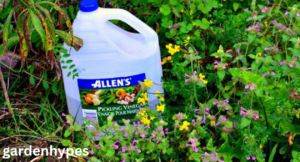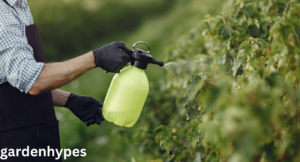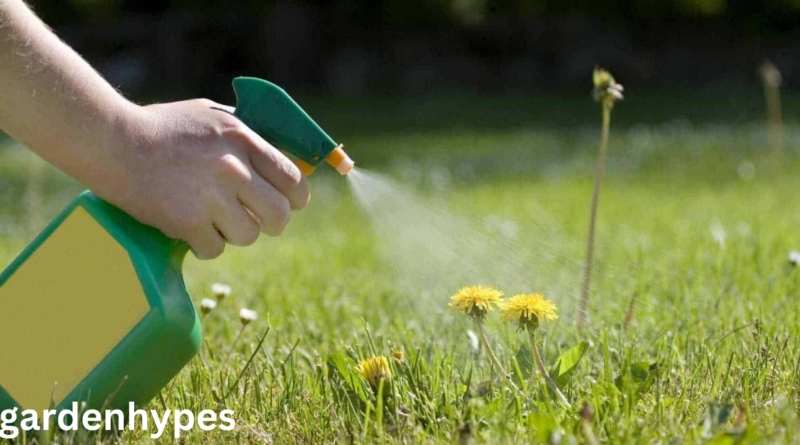Homemade Weed Control Natural Ways to Keep Your Garden
Introduction
If you’ve ever spent hours pulling weeds only to see them come back stronger, you know the frustration of battling these stubborn invaders. Weeds are more than just an eyesore; they compete with your plants for nutrients, water, and sunlight. Many people turn to chemical weed killers, but these can be harmful to your soil, your pets, and even your health. That’s where homemade weed control comes in—a safe, affordable, and eco-friendly alternative.
click in link Chiminea
Homemade weed control methods use simple ingredients you probably already have at home. Things like vinegar, salt, baking soda, or boiling water can be surprisingly effective. Not only are these methods non-toxic, but they’re also budget-friendly and easy to apply. Instead of filling your garden with harsh chemicals, you can create natural solutions that actually work and keep your plants safe.
In this guide, we’ll dive into everything you need to know about homemade weed control. From understanding why weeds are such a problem to learning tried-and-true DIY weed killer recipes, you’ll walk away with practical tips that you can use today. Whether you’re caring for a vegetable garden, a flower bed, or even your driveway, these natural solutions will help you keep weeds under control without relying on toxic sprays.
Understanding the Problem with Weeds
Weeds are often dismissed as “just plants in the wrong place,” but the truth is, they can wreak havoc on your garden. They’re aggressive growers, spreading quickly and outcompeting your flowers, vegetables, and grass. Some weeds, like dandelions, send roots deep into the soil, making them incredibly difficult to remove completely. Others release seeds that can spread in the wind, ensuring they pop up year after year.
But weeds don’t just steal nutrients from your plants. They can also harbor pests and diseases, putting your entire garden at risk. When weeds thrive, they create an environment that attracts insects and fungi, which can then spread to your crops. Left unchecked, a weed problem can completely take over your outdoor space.
Chemical weed killers may seem like the easy solution, but they come with hidden dangers. Many commercial sprays contain glyphosate and other toxic chemicals that can harm pollinators like bees, contaminate your soil, and even affect your health through food and water sources. Children and pets are especially vulnerable since they often play close to the ground. By choosing homemade weed control methods, you not only protect your garden but also create a safer environment for your family.
Benefits of Homemade Weed Control Methods
So, why should you consider homemade weed control instead of picking up a bottle of chemical spray? First and foremost, it’s about safety. Natural solutions don’t leave behind harmful residues that can affect your vegetables, pets, or children. You’ll feel better knowing that your garden is thriving without relying on toxic substances.
Another big benefit is cost. Think about how much money you spend on store-bought weed killers. Homemade solutions use simple ingredients like vinegar, salt, or boiling water—things you probably already have in your kitchen. That means you can tackle weeds without spending extra cash.
Homemade methods are also eco-friendly. Chemical weed killers can seep into the soil and eventually into groundwater, harming ecosystems and wildlife. Natural alternatives, on the other hand, break down quickly without polluting the environment. Plus, these methods often work faster than you’d expect. A simple vinegar spray, for example, can dry up weeds in just a day or two.
The best part? Homemade weed control is versatile. You can customize solutions depending on the area you’re treating—whether it’s your vegetable patch, flower beds, or driveway cracks. You’re in control, and that’s something store-bought sprays can’t always offer.
click in link Chiminea

Simple Homemade Weed Killers That Work
When it comes to natural weed killers, the best solutions are often the simplest. Let’s take a closer look at a few homemade options that gardeners swear by:
Vinegar as a Natural Weed Killer
Vinegar is one of the most popular and effective natural weed killers. Its high acidity burns the leaves of weeds, causing them to wither and die. Household vinegar works well for small weeds, but for tougher growth, horticultural vinegar (which has a higher acidity level) is even more effective. To make a basic spray, fill a spray bottle with vinegar and apply directly to the leaves on a sunny day. Within 24–48 hours, you’ll see results.
Salt and Water Solution
Salt is another powerful natural weed killer, especially for cracks in sidewalks or driveways where you don’t want anything to grow. Mix 1 cup of salt with 2 cups of hot water and pour it directly onto the weeds. Be careful when using salt in garden beds, though, because it can make soil unsuitable for future plant growth.
Baking Soda for Cracks and Crevices
Baking soda works wonders for weeds growing in pavement cracks or stone walkways. Simply sprinkle baking soda directly on the weeds, especially after watering or rain. The sodium content dries them out, preventing regrowth. It’s a simple, pet-safe, and budget-friendly option for hard-to-reach spots.
These simple solutions may not eliminate every single weed on the first try, but with regular application, they’ll significantly reduce weed growth without harming your garden.
Mulching: The Natural Weed Barrier
One of the easiest ways to prevent weeds before they even start is by mulching. Mulch creates a physical barrier that blocks sunlight, making it nearly impossible for weed seeds to germinate and grow. This method not only stops weeds but also helps your garden in other ways by retaining soil moisture, regulating temperature, and improving soil health over time.
Different Types of Mulch to Use
There are many options when it comes to mulch. Organic mulches, like shredded leaves, grass clippings, straw, and wood chips, are great because they break down over time and add nutrients to your soil. Inorganic mulches, like black plastic or landscape fabric, last longer but don’t improve soil quality. The best choice depends on your garden’s needs. For vegetable gardens, straw or grass clippings are ideal, while wood chips work well for flower beds and shrubs.

How to Apply Mulch Correctly
The key to effective mulching is thickness. A thin layer won’t stop weeds, but a 2–4 inch layer provides solid protection. Spread mulch evenly around your plants, making sure not to pile it directly against stems or tree trunks, as this can cause rot. Refresh mulch as needed, especially organic types that decompose over time.
click in link Chiminea
With the right mulch, you’ll notice fewer weeds popping up, less need for watering, and healthier plants overall. It’s one of the simplest yet most effective weed control methods any gardener can use.
faqs
- Can vinegar kill all types of weeds?
Vinegar is effective on many common weeds, especially young and shallow-rooted ones. However, it may not work as well on deep-rooted or perennial weeds like dandelions. For tougher weeds, repeated applications or stronger vinegar (horticultural vinegar) may be needed. - Will salt damage the soil?
Yes, salt can make soil unsuitable for plant growth if overused. That’s why it’s best used in areas where you don’t want anything to grow, like driveways, walkways, and pavement cracks. Avoid using salt-based solutions in vegetable gardens or flower beds. - How long does homemade weed killer last?
Homemade weed killers usually work quickly but may not have the long-lasting effects of chemical sprays. You might need to reapply every few weeks, especially after rain, to keep weeds under control. - What is the safest weed killer for pets?
Natural options like vinegar sprays, boiling water, and mulching are the safest for homes with pets. Always avoid using chemical herbicides around animals, as they can be toxic if ingested or absorbed through their paws. - Is hand-pulling weeds still necessary?
Yes, sometimes hand-pulling is still the best method—especially for large weeds with deep roots. Combining hand-pulling with homemade weed control methods creates a more effective long-term strategy for a weed-free garden.
